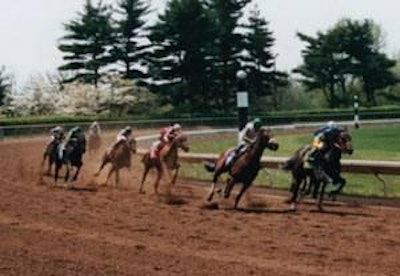
Did you know most horses are being raised and trained in areas that are selenium deficient? Selenium is an essential nutrient and it is very important to take a look at the way we feed and supplement this to our animals.
Selenium has several important functions, including the production of antibodies for better immunity, production of thyroid hormone (thyroxine) that can affect growth rates, vitamin E retention as well as protection against oxidative damage to cell membranes.
Some key benefits of selenium for horses are its:
- function as a natural antioxidant;
- role in resistance to viral infections;
- reproduction benefits;
- contributions to growth;
- protection of muscle tissue integrity; and
- involvement in immune response.
Selenium deficiencies can cause health problems in horses, such as muscular dystrophy (foals), ‘tying up,' anorexia, emaciation, muscle weakness, tachycardia and diarrhea. Early embryonic death, abortions and sudden death can also result from selenium deficiencies, costing the equine industry and horse owners millions of dollars each year.
Traditionally, selenium has been supplemented to horses in the inorganic form, as sodium selenite or sodium selenate. The organic form, and specifically selenium yeast, is more available to the animal as it is readily absorbed and stored in muscle tissues and has been scientifically proven to benefit animal health and performance. Concerns with inorganic supplementation may include high levels of toxicity and danger at exceeded levels, as well as being less available to horses, as it is rapidly excreted from the body.
Broodmares and foals
Organic selenium is applicable to all equine diets. Selenium is key for optimum mare reproductive function as well as delivering foals in the best possible immune status. Mineral reserves are often lowest and most critical at parturition, as during this time the mare transfers a large quantity of trace minerals to the fetus. The onset of lactation places further demands on the mare's nutrient status, and if she is deficient, the foal will often also be born in deficient status.
Organic selenium and other trace minerals help the mare build tissue reserves that improve her ability to meet gestation and lactation requirements, without compromising her health and that of the foal. Improved foal immune status helps the young animal handle and overcome oxidative stress more efficiently. This has beneficial effects in times of stress such as weaning, transportation and disease challenge.
It can also aid in the prevention of retained placentas and cystic ovaries, thereby improving the probability to get mares rebred in a timely fashion.
Performance horses
Exercise increases oxidative stress and metabolism, leading to increased mobilization of tissue selenium to meet these demands. This often explains why exercising equine athletes have greater selenium needs. According to Gill and Jacques (2004), when selenium is deficient in the diet, muscle damage can occur in the performance horse, and disorders such as cardiamyopathy, myositis or muscle inflammation, white muscle disease as well as tying up' can occur.
Horses subjected to heavy conditioning, fast growth and exercise can benefit tremendously from organic selenium. The importance of digestion, absorption and retention of organic selenium to exercising equine athletes has been investigated by Pagan et al., (1999). They concluded that organic selenium outperformed inorganic, and is better able to meet increased selenium needs because of its ability to be better absorbed and retained by muscle tissues.
Geriatric horses
Organic selenium supplementation can also be of great benefit in diets of geriatric horses, especially since the ability of the animal to extract nutrients from feed decline with age. It can also help ensure optimum immune status, again through better absorption and retention in muscle tissue.
Selenium clearly plays an important role in equine health and performance. The form of selenium supplemented to horses has a direct impact on the way selenium is stored and used by the body. Research demonstrates the organic form, specifically selenium yeast, delivers optimum selenium status for all horses.




.jpg?auto=format%2Ccompress&fit=crop&h=167&q=70&w=250)











